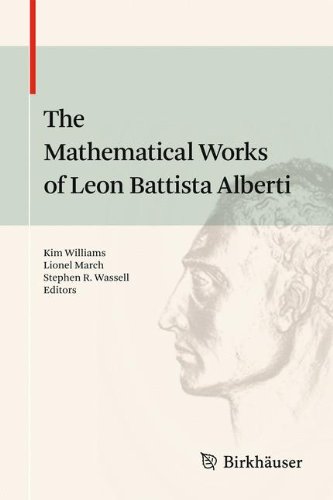

Most ebook files are in PDF format, so you can easily read them using various software such as Foxit Reader or directly on the Google Chrome browser.
Some ebook files are released by publishers in other formats such as .awz, .mobi, .epub, .fb2, etc. You may need to install specific software to read these formats on mobile/PC, such as Calibre.
Please read the tutorial at this link: https://ebookbell.com/faq
We offer FREE conversion to the popular formats you request; however, this may take some time. Therefore, right after payment, please email us, and we will try to provide the service as quickly as possible.
For some exceptional file formats or broken links (if any), please refrain from opening any disputes. Instead, email us first, and we will try to assist within a maximum of 6 hours.
EbookBell Team

5.0
50 reviewsLeon Battista Alberti (1404¬–1472) was a highly prolific polymath of the fifteenth century. Although his contributions to architecture and the visual arts are well known and available in good English editions, as are many of his literary and social writings, his mathematical works are not well represented. This present volume was planned to fill that gap, with entirely new English translations and critical commentaries making the works easily accessible for a wide readership of specialists and non-specialists alike. Four texts are included here. Although Alberti’s Commentarii rerum mathematicarum appears to be lost, we have his Ludi matematici . In these “games” Alberti describes twenty practical applications of mathematics in an accessible style. The translation is accompanied by a new transcript of the recently identified manuscript held in the National Library in Florence upon which it was based. In Elementi di pittura, Alberti provides a catalogue of definitions and geometric constructions, using Euclidean references but drawing a distinction between theoria of mathematical entities and praxis of painterly applications. Alberti’s most original mathematical contribution is a late work, De compendis cifris, first discussing the frequency of vowels, consonants, and different groupings in Latin, and then introducing a method of polyalphabetic substitution. Even more original is his enciphered code which permutes four numerals in two-, three-, and four-digit groups. De lunularum quadratura rehearses the classical demonstration of squaring a lune by Hippocrates.